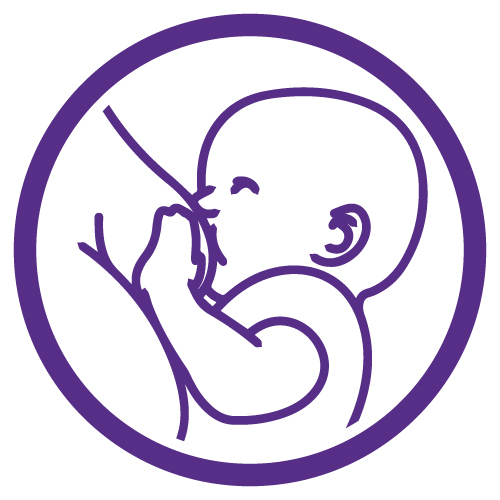 IBCLC Detailed Content Outline: Pathology / Maternal Focused CERPs - Section III B
IBCLC Detailed Content Outline: Pathology / Maternal Focused CERPs - Section III B
Access CERPs on Pathology / Maternal for the IBCLC Detailed Content Outline recertification requirements. On-demand viewing of the latest Pathology / Maternal focused IBCLC CERPs at your own pace.
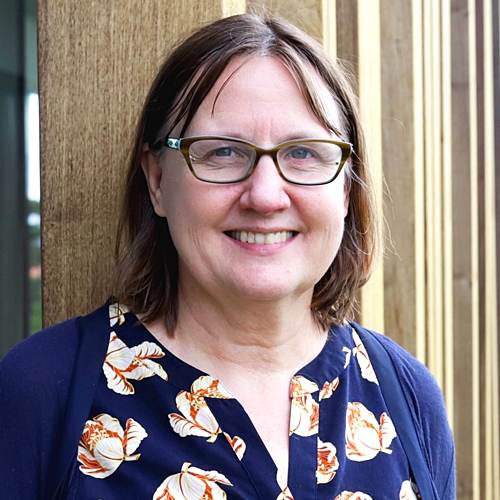
Promoting Self-Management of Breast and Nipple Pain for Women During Breastfeeding

Ruth Lucas, PhD, RNC, CLS, received her Bachelor of Science in Nursing from George Mason University (1986) and her Doctor of Philosophy of Science (2011) from the University of Illinois at Chicago. Based on 20 years of supporting women and infants to initiate breastfeeding, her research focuses on the biobehavioral mechanisms of breastfeeding, such as breast and nipple pain. Dr. Lucas and her team conducted a pilot randomized control trial (RCT) as part of the Center for Accelerating Precision Pain Self- Management (CAPPS-M) (P20NR016605). The pilot RCT tested the feasibility, acceptability, and efficacy of a breastfeeding self-management (BSM) intervention for breast and nipple pain during breastfeeding and found the BSM intervention significantly reduced breast and nipple pain and is associated with pain sensitivity polymorphisms. Her published work describes management of pain during breastfeeding, a clinical indictor of infant breastfeeding behaviors, and a biomedical device to measure breastfeeding in real time.
Topic: Promoting Self-Management of Breast and Nipple Pain for Women During Breastfeeding - [View Abstract]
Despite 90% of women experiencing breast and nipple pain during breastfeeding, mothers rarely receive adequate knowledge and skills for breastfeeding pain self-management and cease breastfeeding. Our randomized control trial (RCT) pilot study tested the feasibility, acceptability, and efficacy of a breastfeeding self-management intervention (BSM) on breast and nipple pain and breastfeeding outcomes. Sixty women were recruited after delivery and completed survey measures of pain and breastfeeding outcomes, pain sensitivity testing and a biological sample to assess genetic risk for pain at baseline. Both groups completed pain and breastfeeding outcomes surveys via texting links using REDCap 7.4. Women in the intervention group received biweekly nurse-lead texting and cloud-based educational modules addressing breast and nipple pain and breastfeeding challenges. The BSM intervention was acceptable and sustainable for 94% of the women who continued to breastfed to 6 weeks. Acute breast and nipple pain at 1 and 2 weeks were significantly reduced and was associated with pain sensitivity polymorphisms, suggesting a genetic risk profile of pain-associated breastfeeding cessation.
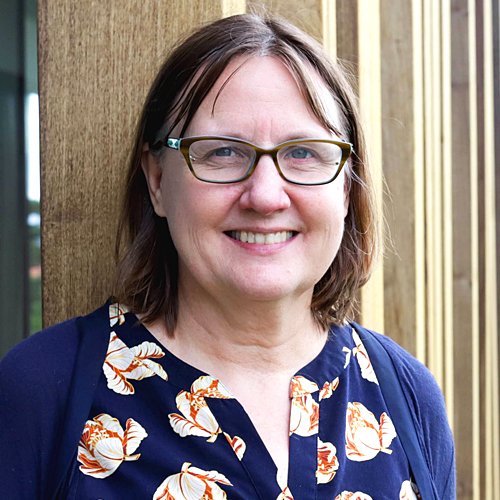
View Details / Enroll


Debbie Albert, PhD, BSN, IBCLC, is a full time lactation consultant at UC Davis Med Center--working with all facets of their lactation service; including maternity floor, level IV NICU, pediatrics, PICU, and Employee Breastfeeding Support Program. She is also a prenatal instructor with their patient education program, nursing staff educator, and chairs the UCD Breastfeeding Task Force and the UCD Breastfeeding Support Program Committee. She received an Employee Excellence Award June, 2013 and June, 2015, and a Nursing Excellence Award in May, 2016. In addition, UC Davis programs have received IBCLC Lactation Care Awards and Sacramento Coalition and California State Coalition Breastfeeding Awards. Debbie has lactation experience in Florida, Texas, and California. She is Member of the LEAARC Board, a member of ILCA’s Equity Committee, and UCD Status of Women Committee. She is married to Dan Albert for 33 years, and has two sons, Josh (28), and David (24).
Raynauds is an illusive condition that tends to be confused with other conditions, misdiagnosed, and consequently rarely treated--causing the breastfeeding dyad to suffer. This program provides a review of the symptoms, medical and lactation resources, and clinical applications that facilitate most the effective treatment/comfort for the patient.

View Details / Enroll


Lisa Marasco has been working with breastfeeding mothers for 35 years and has been Internationally Board Certified since 1993. She holds a Master’s degree in Human Development with specialization in Lactation Consulting and was designated a Fellow of ILCA in 2009.
Lisa is co-author of Making More Milk: The Breastfeeding Guide to Increasing Your Milk Production, a contributing author to the Core Curriculum for Interdisciplinary Lactation Care, and a Cochrane Collaborative author. She is employed by WIC of Santa Barbara County while she continues to research, write and speak. In addition, Lisa is affiliated with La Leche League of So. Calif/Nevada, and serves on the Breastfeeding Coalition of Santa Barbara County.
Topic: Deciphering the Lactation Curve - [View Abstract]
Topic: Developing An Action Plan for Mammary Hypoplasia: Improving our Understanding to Optimize Care - [View Abstract]
Topic: Getting a Better Grip on Prolactin - [View Abstract]
Topic: Recognizing When Things Are Heading South - [View Abstract]
Topic: The Mysterious Milk Ejection Reflex - [View Abstract]
Breastfeeding is normally a robust process, but sometimes mothers and babies end up in a gray area where your gut isn’t sure that everything is going to be okay. When low milk production concerns present, where do you start? Is it real or perceived? Delayed, secondary or primary? Which came first, the chicken or the egg? This session walks through the assessment process to determine whether a problem exists and what the cause of a low milk supply might be.
View Details / Enroll

Rusty Pipe Syndrome: A Case Report From Poland

Anna has been working as a midwife since 2009. From the very beginning of her studies she has been fascinated with breastfeeding. During her studies for her Bachelor's and Master's degrees in Midwifery, her main area of interest was promotion and support for breastfeeding among women. Anna's interest in breastfeeding turned into a passion that led her to pursue the Polish Certification of Lactation Consultant and she is working toward certification as an IBCLC. She opened a private practice and a support group for local women in Krakow (cracko). Anna’s Interest and passion for lactation and breastfeeding have deepened during her current PhD studies. She is a PhD candidate in 2018 at University Medical College and is the coordinator of the Krakow Human Milk Bank.
Her scientific area of expertise: change in milk composition (macronutrients), human microbiota during pregnancy, lactation as well as tandem breastfeeding. Her research is carried out in the Department of Obstetrics and Perinatology. Anna is the author of many lectures and workshops for students of midwifery and medicine in area of breastfeeding, lactation and the variation of composition of human milk. Since 2016 she has been popularizing the science of human lactation in Poland and she is always finding new ways to promote and support breastfeeding women. In her spare time she practices meditation, yin yoga and is learning how to dance rock and roll.
Topic: Rusty Pipe Syndrome: A Case Report From Poland - [View Abstract]
Bloody nipple discharge is an unusual experience during lactation for both the mother and her attending physicians. Painless bleeding from the breasts in the early post-partum period can be a physiological condition called a rusty pipe syndrome. This report describes the case of bilateral bloody nipple discharge that started after caesarean section and subsequently ceased within a few days.
Natural breastfeeding is the best way of nourishing newborns and infants. The process of breast milk production starts as early as between weeks 16 and 22 of pregnancy and colostrum can appear from the nipple in the following weeks. Milk containing blood can be a cause of concern for the mother and her physician. The reasons can be various; however not all of them would be caused by bleeding from the glandular tissue.

View Details / Enroll

Sensory Processing and Breast/Bodyfeeding: Using Co-Regulation to Support the Feeding Relationship

Gretchen Becker Crabb is an Occupational Therapist, Licensed Professional Counselor, and Endorsed Infant Mental Health Therapist. She is also a Certified Lactation Counselor, La Leche League Leader, and Brazleton Newborn Observation (NBO) trainer.
Gretchen’s passion is rooted in fostering lifelong relationships and connection through co-regulation in pregnancy and beyond. Her unique approach to lactation support and therapy is rooted in culturally attuned sensory, somatic, and trauma-informed mental health techniques.
Gretchen owns and operates a private practice in Madison, Wisconsin. For 21 years, she has provided developmental, trauma, feeding, and attachment support for tiny humans and their caregivers in birth to three, preschool, private practice, and peer group settings. Gretchen is an international speaker, reflective supervisor, and infant mental health consultant. In these roles, she offers compassionate, experiential, and reflective holding spaces for professionals. She is a proud United States Air Force spouse and mother of three boys.
Topic: Infant Mental Health: What Does It Look Like in Practice? - [View Abstract]
Topic: Scent-Sational Connections: The Role of Olfaction in Development - [View Abstract]
Topic: Sensory Processing and Breast/Bodyfeeding: Using Co-Regulation to Support the Feeding Relationship - [View Abstract]
Topic: Vestibular Processing: Using the Sixth Sense to Support Lactation and Parent/Infant Relationships - [View Abstract]
Well-organized sensory systems provide the foundation for relational feeding. Sensory interactions communicate the story of the dyad, a window into strengths and challenges. Encouraging families to attune to their own sensory preferences and that of their infant can significantly influence the dynamics of the body/breastfeeding relationship. This presentation will explore the basics of sensory processing as it relates to provider, parent, and infant co-regulation in the context of body/breastfeeding and lactation support. We will explore basic neurology and cultural influences of the 8 senses though dyadic examples. Ways in which subtle signs of sensory disorganization and sensory processing disorder present in body/breastfeeding relationships will also be reviewed. Participants will learn practical strength-based sensory strategies to support families in the beginning stages of life, feeding, and beyond.
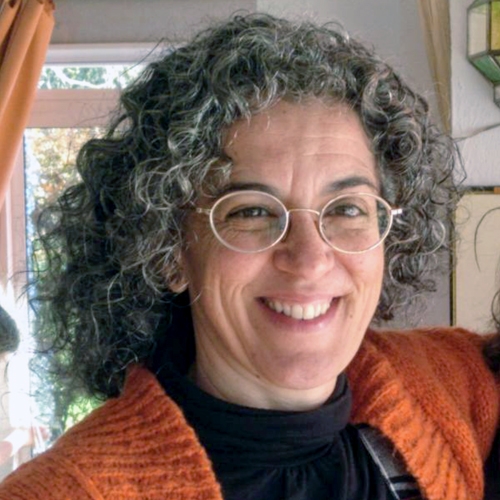
The Art and the Science: A Critical Look at the Physiology and Management of Mastitis

Carmela is a family medicine MD, bachelor´s degree in Public Health Education, and IBCLC since 2005. She is also a BFHI Evaluator and the co founder and past president of the Spanish Lactation Consultant Association (AECCLM). She works in a private Family Wellness Clinic, Raices, as person in charge of the lactation program, which includes two IBCLCs attending breastfeeding families and an extensive offer of breastfeeding training for health care professionals and breastfeeding peer counsellors. The team has trained over three thousand doctors, midwives and nurses from both the Spanish National Health Service and the private sector in Spain. She is a frequent lecturer at national conferences, and has also lectured internationally, both on-site and online. She is the author of several scientific papers on breast pain, mastitis and tongue tie. She is also the author of a breastfeeding/parenting book, “Amar con los Brazos Abiertos” (To Love with Open Arms). She is married to Carlos and they homeschool their four children.
Topic: Assessment and Management of Mastitis - [View Abstract]
Topic: Getting Milk Production off to a Good Start - [View Abstract]
Topic: Management of Chronic Breast Pain: Holistic Approach - [View Abstract]
Topic: The Art and the Science: A Critical Look at the Physiology and Management of Mastitis - [View Abstract]
Mastitis has been occurring for as long as breastfeeding itself. It is a very common difficulty in nursing women. For many decades, its diagnosis and management were considered to be straightforward. However, in the last decade new concepts have been put forward, such as dysbiosis, subacute mastitis, and the concept of the mastitis spectrum. In this talk, we will take a look at the scientific evidence (or lack thereof) for these terms and discuss their impact on day to day clinical management.

View Details / Enroll
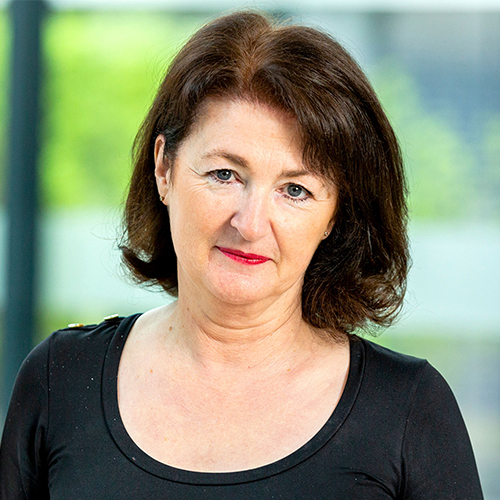
The Latest on Breastfeeding and Candida

Background: There are many factors associated with nipple and breast pain in breastfeeding women. The aetiology and management of mammary candidiasis can add additional challenges for the clinician as they endeavour to provide expert care to the breastfeeding dyad.
Review: The literature was reviewed to explore the diagnosis and management of candida in the breastfeeding dyad.
Findings: There remains a lack of robust evidence in the literature to support accurate diagnosis of candida. Correct treatment and avoidance of over treatment is important.
Conclusion: An exploration of the differential diagnosis for nipple and breast pain is indicated for all women presenting with nipple and breast pain. Culture of breastmilk is important for women suspected of mammary candidiasis, however, analysis is not without challenges.

View Details / Enroll


Lisa Marasco has been working with breastfeeding mothers for 35 years and has been Internationally Board Certified since 1993. She holds a Master’s degree in Human Development with specialization in Lactation Consulting and was designated a Fellow of ILCA in 2009.
Lisa is co-author of Making More Milk: The Breastfeeding Guide to Increasing Your Milk Production, a contributing author to the Core Curriculum for Interdisciplinary Lactation Care, and a Cochrane Collaborative author. She is employed by WIC of Santa Barbara County while she continues to research, write and speak. In addition, Lisa is affiliated with La Leche League of So. Calif/Nevada, and serves on the Breastfeeding Coalition of Santa Barbara County.
Topic: Deciphering the Lactation Curve - [View Abstract]
Topic: Developing An Action Plan for Mammary Hypoplasia: Improving our Understanding to Optimize Care - [View Abstract]
Topic: Getting a Better Grip on Prolactin - [View Abstract]
Topic: Recognizing When Things Are Heading South - [View Abstract]
Topic: The Mysterious Milk Ejection Reflex - [View Abstract]
Milk removal drives milk production and feeds the baby. The ability of a baby or pump to remove milk from the breast depends strongly on the milk ejection/letdown reflex. While normally robust, a number of factors can influence this reflex, some more obvious than others. When milk flow suddenly becomes an issue, the rush is on to determine why and what to do about it. This session will take a deeper look at how this reflex works, factors that can affect it positively or negatively, and potential strategies to help.

View Details / Enroll

Therapeutic Care of the Opioid-Impacted Mother-Infant Dyad

Dr. Lisa Cleveland is a Pediatric Nurse Practitioner and a tenured Associate Professor at UT Health San Antonio, School of Nursing. Her innovative research with mother-infant dyads impacted by opioid use has contributed to changes in clinical practice and improved outcomes. Her recovery residence, Casa Mia, is a collaborative partnership between the School of Nursing and the nonprofit, Crosspoint, Inc. Casa Mia provides safe and supportive housing for pregnant and parenting women with opioid use disorder where they can recover with their children.
In addition, the findings of Dr. Cleveland’s Maternal Opioid Morbidity Study are providing insight into the contextual factors surrounding maternal opioid use relapse and overdose deaths; the leading cause of maternal mortality in TX and a growing cause nationwide. Dr. Cleveland is now developing and psychometrically analyzing a brief screening instrument to help identify women at-risk for overdose death so they may be referred to life-saving resources. Further, Dr. Cleveland is leading the Texas Targeted Opioid Response to ensure access to Narcan: https://www.morenarcanplease.com/, and opioid overdose identification and reversal education. She is also leading a community paramedicine project to prevent overdose, increase the use of peer recovery services, and improve access to treatment.
Between the 2000 and 2009, the use of opioids, such as heroin or prescription pain relievers, during pregnancy increased fivefold. Prenatal opioid exposure can result in newborn withdrawal symptoms often called Neonatal Abstinence Syndrome (NAS). NAS can include inconsolable crying, sleeplessness, and poor feeding. National rates of NAS have tripled since 2000. Opioid detoxification during pregnancy is not recommended and is linked to preterm labor and fetal distress. Therefore, it is recommended that pregnant women with opioid use disorder be stabilized on medication assisted treatment (MAT). However, these medications may still result in newborn withdrawal.
Treatment of NAS is typically focused on symptom management using soothing techniques and medications. Soothing techniques are non-pharmacological comfort measures and are considered the first line of care for infants with NAS. However, these techniques can be difficult to implement in a busy nursery environment. Medications may alleviate some NAS symptoms but, the use of medication is linked to a longer and more costly hospital stay and prolonged separation of mother and infant. As such, the purpose of this presentation is to explore best practices in the care of the opioid impacted mother-infant dyad with an emphasis on the important role of the biological mother.

View Details / Enroll


Dr. Gina Weissman began her career as a dentist, receiving her training at The Hebrew University Hadassah Medical School, Jerusalem. She is also a RN nurse and has been working as an IBCLC, Certified Lactation Consultant, since 1999. She teaches courses in human lactation for both medical professionals and future lactation consultants, mentoring them in preparation for the international exam of the IBCLC. Dr. Weissman councils mothers and releases tongue ties at her private breastfeeding clinic, HalavM. She is an expert in teaching mothers Instinctive Breastfeeding and the author of Mother's Milk, a Video Guide to Breastfeeding (Hebrew/Arabic/English).Dr. Weissman is an international lecturer and the president of the Israeli Association of Certified Lactation Consultants.She lives in Israel with her husband Amir and four sons.
Topic: Understanding the Complexities of Tongue Tie: 2020 Updates - [View Abstract]
Background
As far as anterior tongue tie is concerned, there is a growing, vast body of knowledge that has been validated. As for posterior tongue tie, the scientific evidence is lacking, and the assessment tools are not uniform among practitioners.
Medical diagnoses are not part of the scope of practice of Lactation Consultants. Hence, there is a lot of confusion among professionals (both Drs and Lactation Consultants), resulting in over diagnosis and over treatment on the one hand, and under treatment on the other.
Purpose
• To present a unique perspective of an experienced Lactation Consultant who is also a dentist, experienced in diagnosing and treating various types of tongue ties
• To share a conservative clinical thinking process
• To examine the effects of frenotomy on breastfeeding and nipple pain
• To compare the effect of frenotomy on anterior verses posterior tongue ties.
Approach
The discussion will focus on the clinical dilemmas regarding releasing posterior tongue ties and their implications for breastfeeding.
Clinical cases of babies with posterior tongue ties will be shown to demonstrate how exclusive breastfeeding can be achieved in clinical cases with posterior tongue ties that were not released. Cases of anterior and posterior tongue ties that had been released although breastfeeding was going well will also be shown.
Conclusions
Frenotomy is a predictable procedure for anterior tongue tie. However with posterior tongue ties, the outcome of nipple pain and breastfeeding latch are influenced also by different factors.






